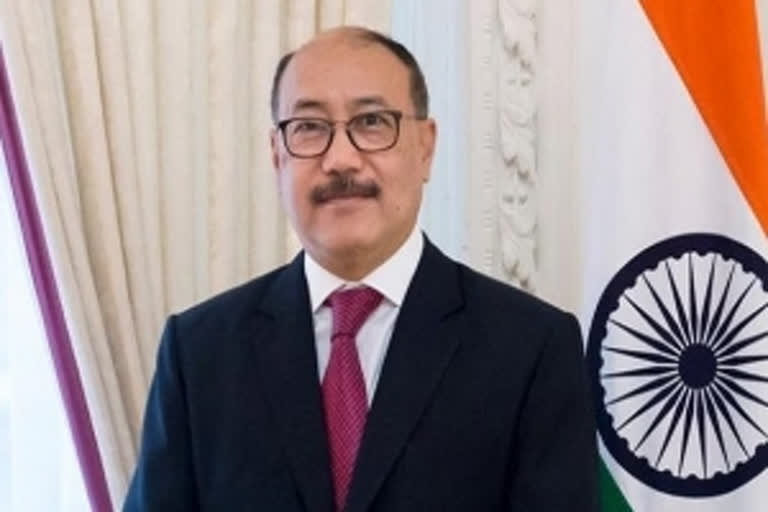New Delhi: The pandemic has disrupted the world order that has been in existence for long, and shaping and reforming this system has been a major foreign policy priority, Foreign Secretary Harsh Shringla said in his virtual address at the inaugural session of a course on “India and the reshaping of the world order” at his alma mater, St Stephen’s College on Monday.
India believes multilateralism must be rules-based and reformed to accommodate current realities even as it works on a new form of globalization based on fairness and equality in the post-COVID-19 world, foreign secretary Harsh Shringla added.
“Multilateral diplomacy has to be based on rules. We are committed to an international order based on rules”, he said. We also believe that the content of globalization needs to change. India believes that multilateralism must be reformed to accommodate current trends and realities, he added.
Referring to the Prime Minister’s call for human-centric globalization that transcends a purely economic agenda, he added, “We would like a new form of globalization, based on fairness, equality and humanity in the post-COVID world.”
Shringla also highlighted that one of India’s priorities in the post-pandemic era is to make the country the nerve centre of global supply chains in line with the prime minister’s vision of Aatmanirbhar Bharat.
“We are actively engaged in promoting India as an alternative manufacturing hub and an innovation destination,” he added.
Though crises like pandemic alter geopolitics, the fundamental spatial orientation of India’s policy remains ‘Neighbourhood First’. Initiatives such as BIMSTEC link Neighbourhood First to another fundamental pillar of our foreign policy, viz., Act East.
Also Read: Health authorities issue guidelines for post-Covid care
India has a growing dialogue with ASEAN through multiple channels, he said.
Think West –India’s outreach to the Gulf and West Asian countries – has become an increasingly important pillar of the country’s foreign policy. Our engagement with Africa, both in political and economic terms, has also intensified as never before.
“India has also outlined a vision for engagement in the Indo-Pacific region based on a free, open and inclusive order, and on respect for sovereignty and territorial integrity, peaceful resolution of disputes, and international rules and laws”, he pointed out.
He reiterated that India, in the midst of the pandemic, went out of its way to be a net provider of security.
“India decided, in these very difficult circumstances, to continue its role as a responsible member of the international community and take a far-sighted view that will stand India in good stead in the post-pandemic world. We placed humanity at the centre of global prosperity and international cooperation as inherent in responsible international citizenship”, he added.
Amid the pandemic, India tried to act as a “pharmacy of the world” and provided medicines and essential medical supplies to more than 150 countries and sent rapid response medical teams to Kuwait, the Maldives, Mauritius and Comoros.
India also “went out of its way to be a net provider of security”, Shringla said.
Looking to the future, which he described as uncertain, Shringla said India needs to be “prepared to continuously adapt and innovate”, build resilience and capacity, and be agile and flexible in international diplomacy.
Also Read: 'Daily recoveries from COVID-19 more than new infections reported per day'



